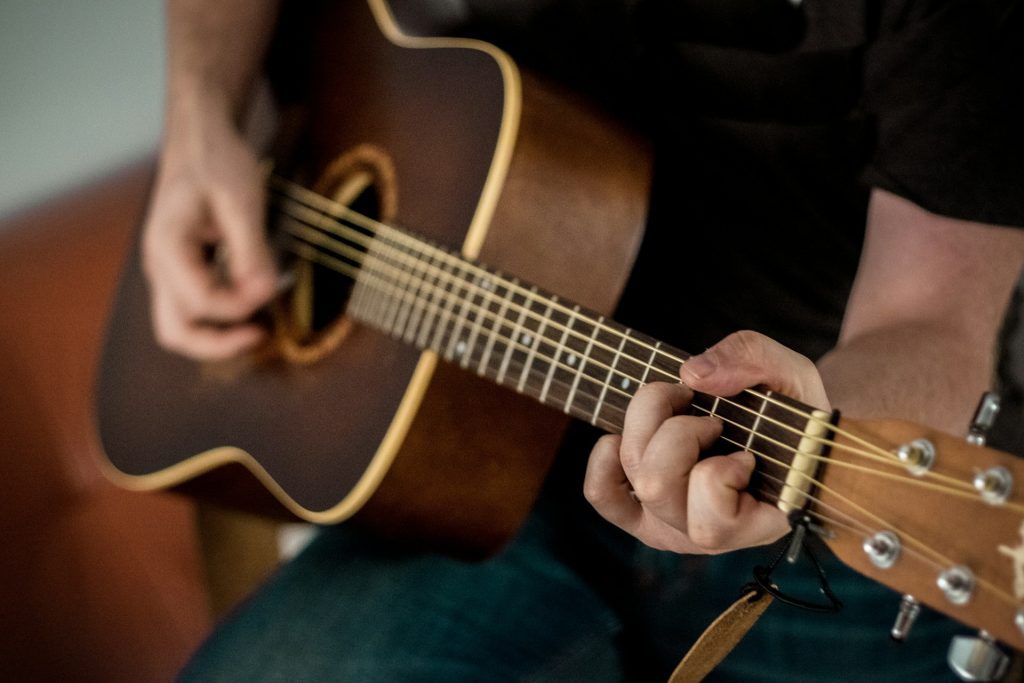Our world is brimming with words, and communication is the cornerstone of human interaction. Our ability to express thoughts, emotions, and ideas effectively can significantly impact our relationships and overall well-being. Traditional methods of improving communication skills often involve public speaking workshops or language courses. However, another avenue with remarkable potential is music. I’m excited to guide you on how you can harness music to unlock and amplify your communication abilities.

The Harmony Between Music and Communication
In music therapy, music can serve as a substitute for verbal communication because both music and communication involve expression. Both require the ability to listen fully. Communicating through music can be helpful if someone has difficulties finding the words to express themselves.
How Music Enhances Communication Skills
Finding Resonance in Emotion
Music has a unique ability to evoke emotions and trigger deep introspection. By actively engaging with different musical genres and compositions, you can develop heightened emotional awareness. Recognizing and understanding your own emotions is a fundamental step toward effective communication. As you learn to decipher the emotional nuances in music, you’ll become more adept at recognizing and empathizing with the emotions of others, leading to more profound connections in your interactions.
Rhythmic Pacing for Speech
The rhythm inherent in music can inspire rhythmic pacing in speech. Experiment with the natural rhythm of your favorite songs and observe how incorporating similar cadences into your speech pattern can make your communication more engaging and memorable. This technique is particularly useful when delivering presentations or public speaking, as it helps you maintain a steady flow and effortlessly capture your audience’s attention.
Expressing Through Lyrics
Lyrically rich songs often encapsulate complex emotions and intricate narratives. Analyzing and interpreting song lyrics enhances your ability to articulate thoughts with greater imagery and more expressive language. Integrating poetic elements into your conversations can captivate your listeners and help you convey ideas more creatively and persuasively.
The Dance of Active Listening
One of the most vital aspects of effective communication is active listening. Music trains us to listen intently, pick up on subtleties, and respond appropriately. Apply this skill to everyday interactions by giving your full attention and showing genuine interest in what others are saying. These actions foster deeper connections and show respect for the speaker, creating an environment of open communication.

Collaborative Improvisation
In music therapy, improvisation encourages spontaneous expression. Apply this principle to your conversations by staying open to unexpected turns and adapting to the flow of the dialogue. Just as musicians respond to each other’s melodies, effective communicators respond flexibly to the ideas and emotions shared by their conversation partners.
Using Music as a Metaphor
Metaphors often simplify complex concepts. Drawing parallels between music and communication can make abstract ideas more relatable. For example, discussing how harmonies blend in music can mirror the sense of harmony required in teamwork. Using this metaphor can encourage others to contribute their unique perspectives for a cohesive outcome, helping them better appreciate their role in the collective whole.
Enhancing Memory and Recall
Music can aid memory and recall. Applying mnemonic devices, such as setting information to a tune, can help you remember key points during conversations or presentations. This technique ensures your message remains coherent and impactful, even in complex discussions.
The Transformative Power of Music
Integrating music into your life can transform the way you communicate. Whether through enhancing emotional awareness, refining speech rhythms, or fostering active listening, music offers a rich toolkit for improving your communication skills. By embracing the harmonious interplay between music and language, you can unlock new levels of expression and connection.
Practical Tips to Start Your Musical Communication Journey
- Listen Actively: Spend time each day listening to different genres of music. Pay attention to the emotions and stories conveyed.
- Sing Along: Don’t just listen—sing along to your favorite songs. Notice how the rhythm and lyrics feel as you vocalize them.
- Create Playlists: Curate playlists for different moods and occasions. Use them as tools to help you express your emotions.
- Write Lyrics: Try your hand at writing song lyrics to articulate your thoughts and feelings creatively.
- Collaborate Musically: If you play an instrument, join a band or a group. If not, consider music therapy sessions to explore improvisation and collaborative music-making.

By weaving music into your daily routine, you can enhance your communication skills in a fun, engaging, and profoundly effective way. So, turn up the volume and let the melody of communication play on!





